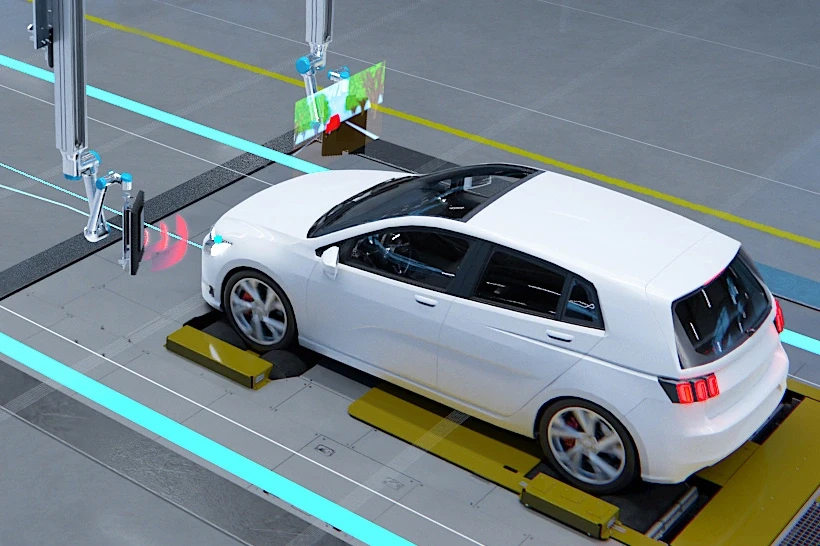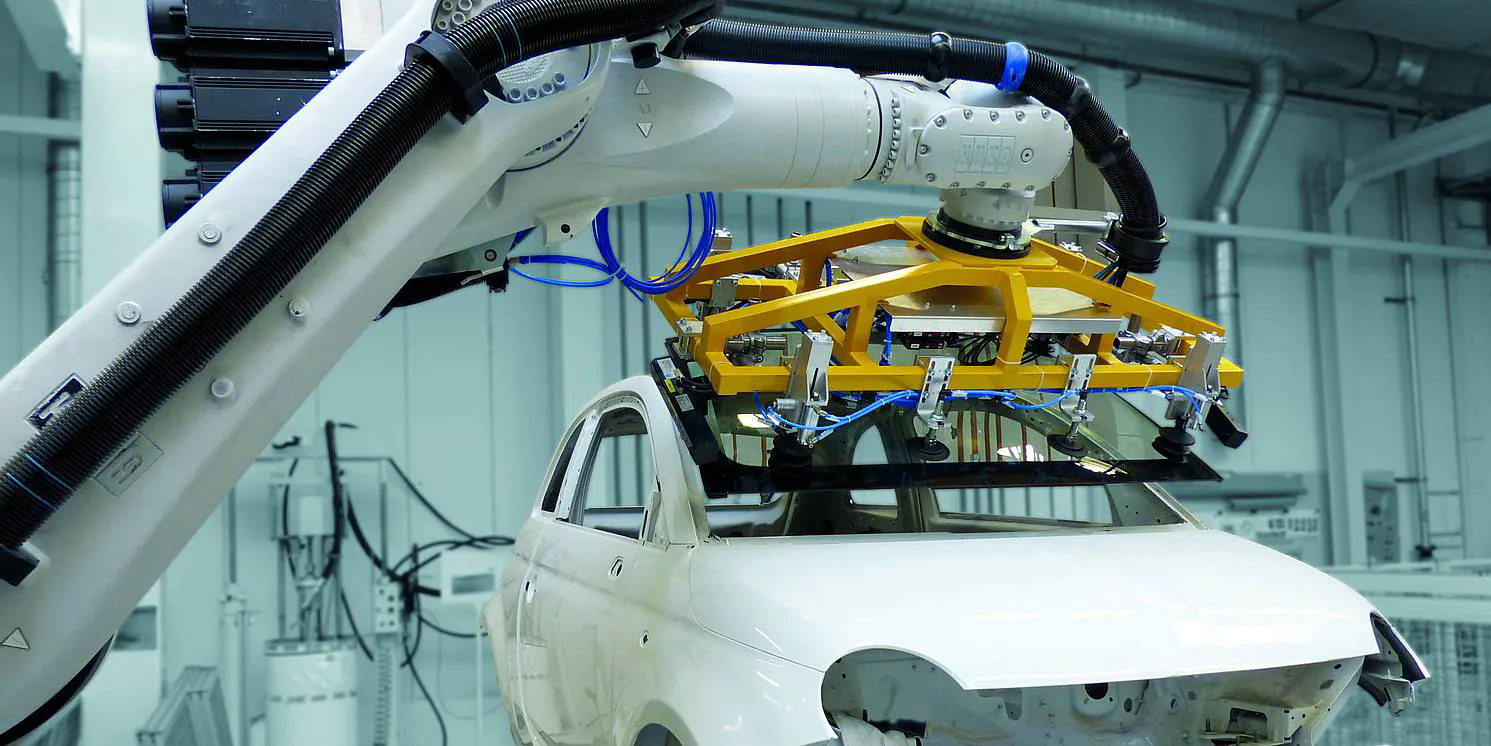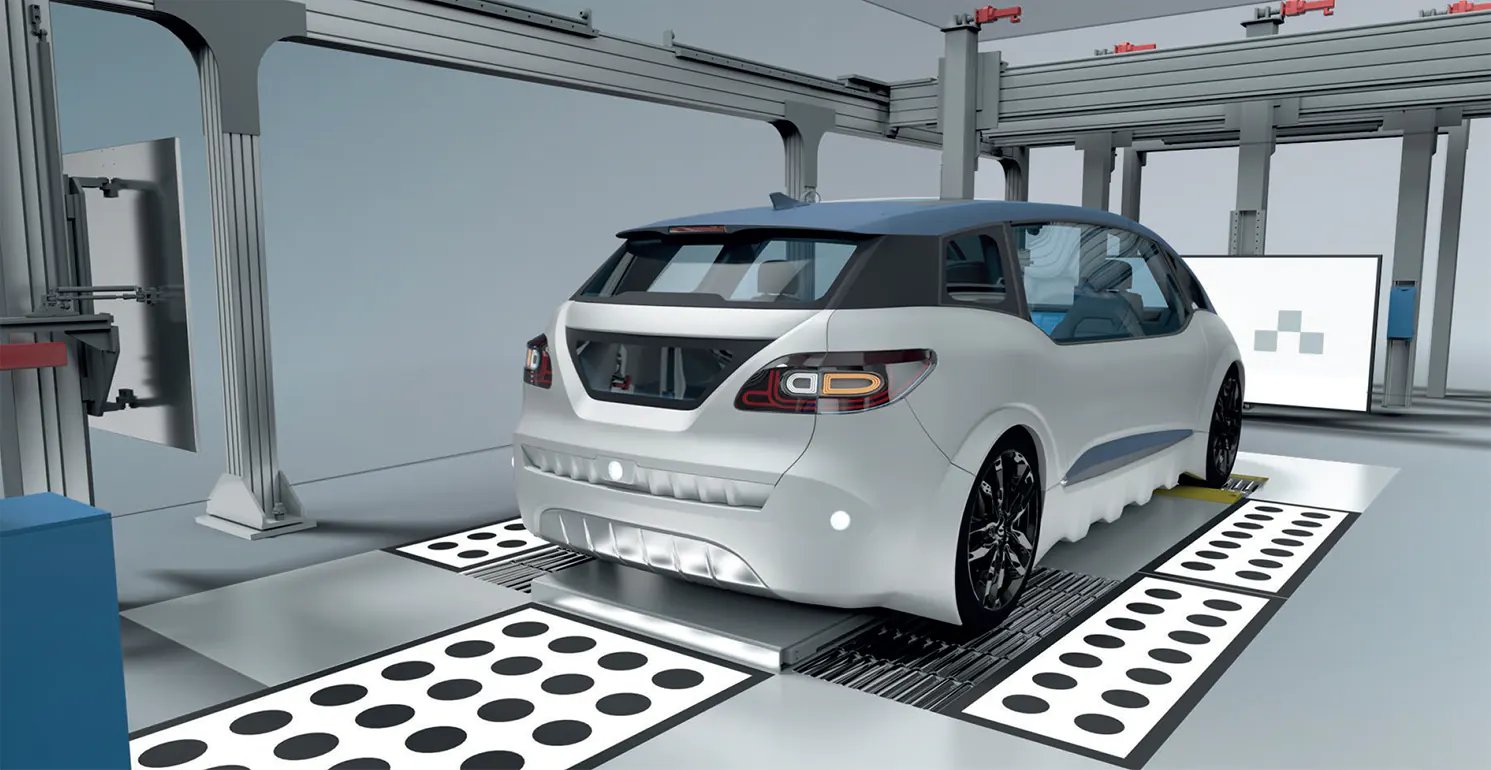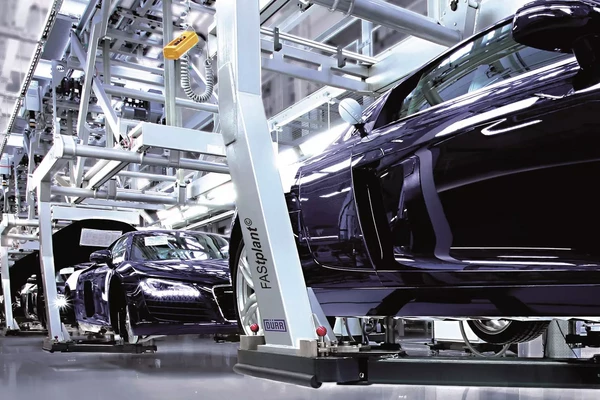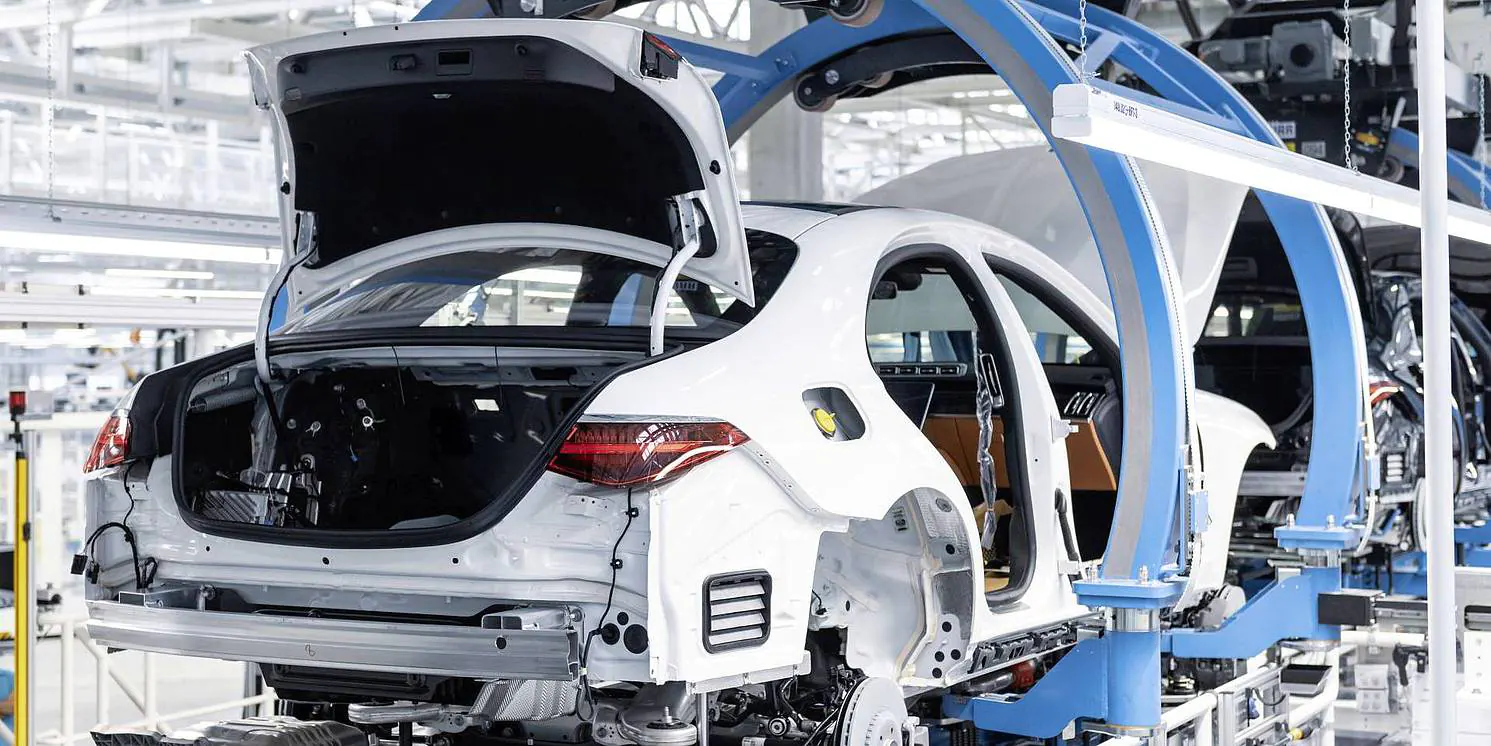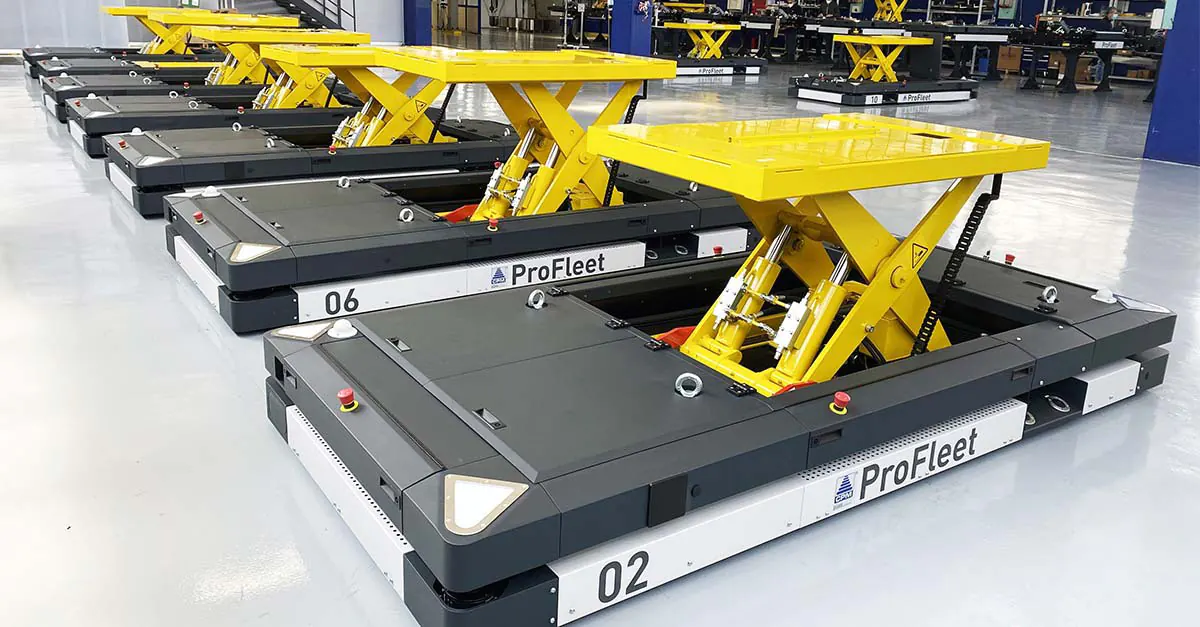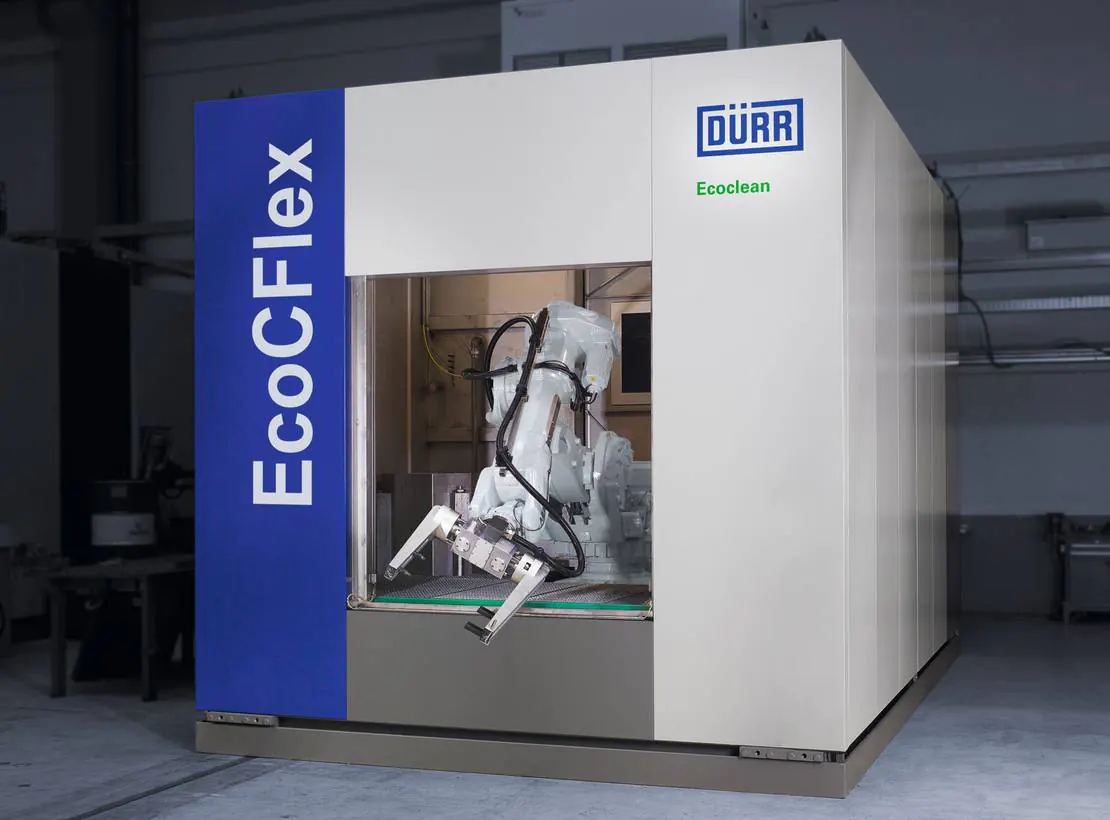









ADAS Test Systems
x-proof 360
The essential system to prove modern vehicle safety
Automated driving will soon be a mandatory part of every new vehicle, and autonomous driving is no longer a distant vision of the future. In order to ensure the safety of automatic driving functions today as well as autonomous driving tomorrow, Dürr has created the x-proof 360 essential setup for Vehicle-in-the-Loop tests of ADAS/AD functions by combining over-the-air stimulation and two of our cutting-edge products:
x-road curve
The multi-function roll test stand with steering capability offers all conventional features of a roll test stand and allows the vehicle to not only drive forward, but to perform cornering maneuvers as well.
x-around
The multi-axial positioning system for dynamic scenarios offers full flexibility and precise positioning for over-the-air stimulation equipment, even in case of dynamically movable objects in front of the vehicle.
By synchronizing the real test vehicle behavior and simulated object movements with a virtual driving environment using over-the-air stimulation, the x-proof 360 enables tests of various ADAS and autonomous driving tasks.
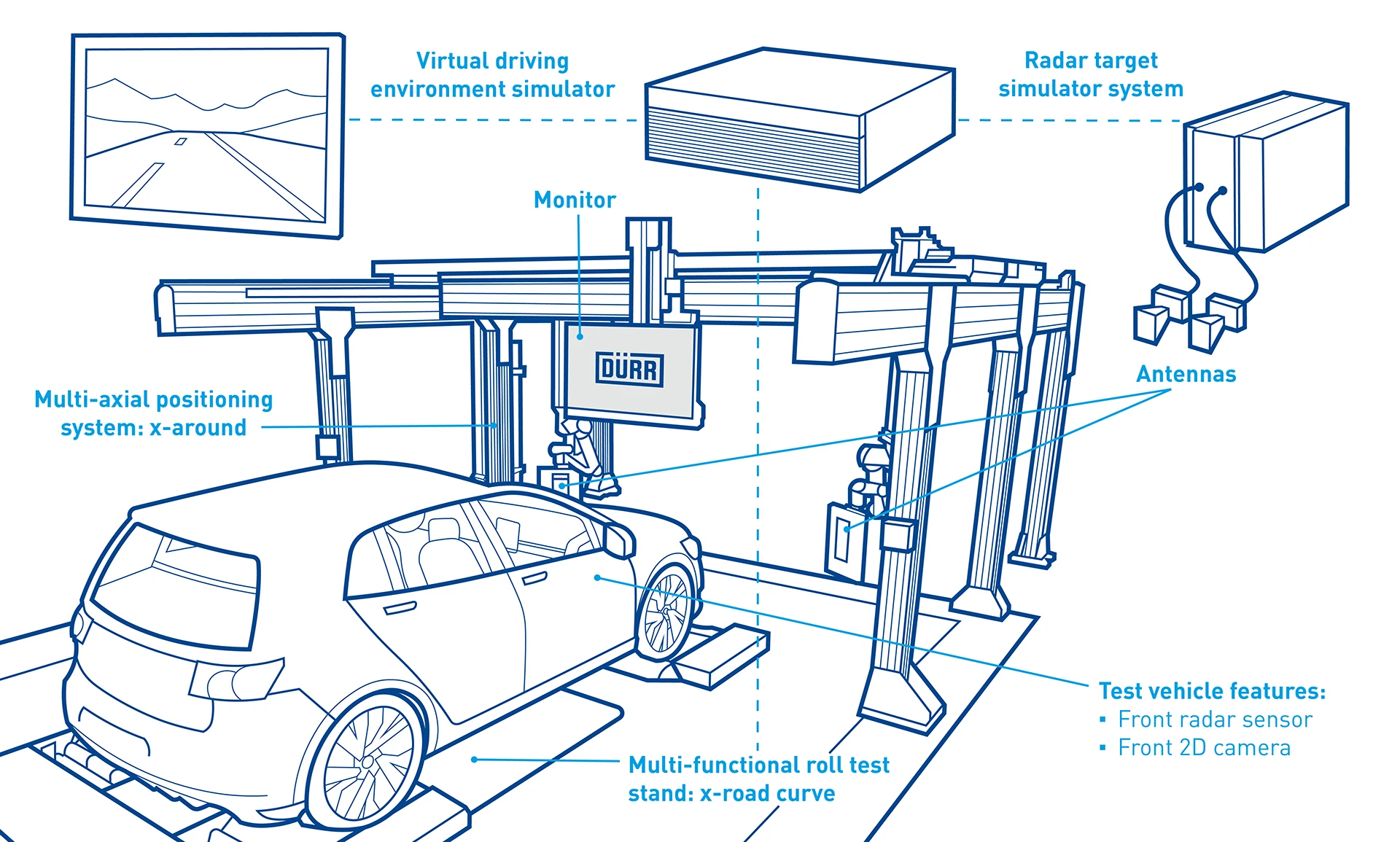
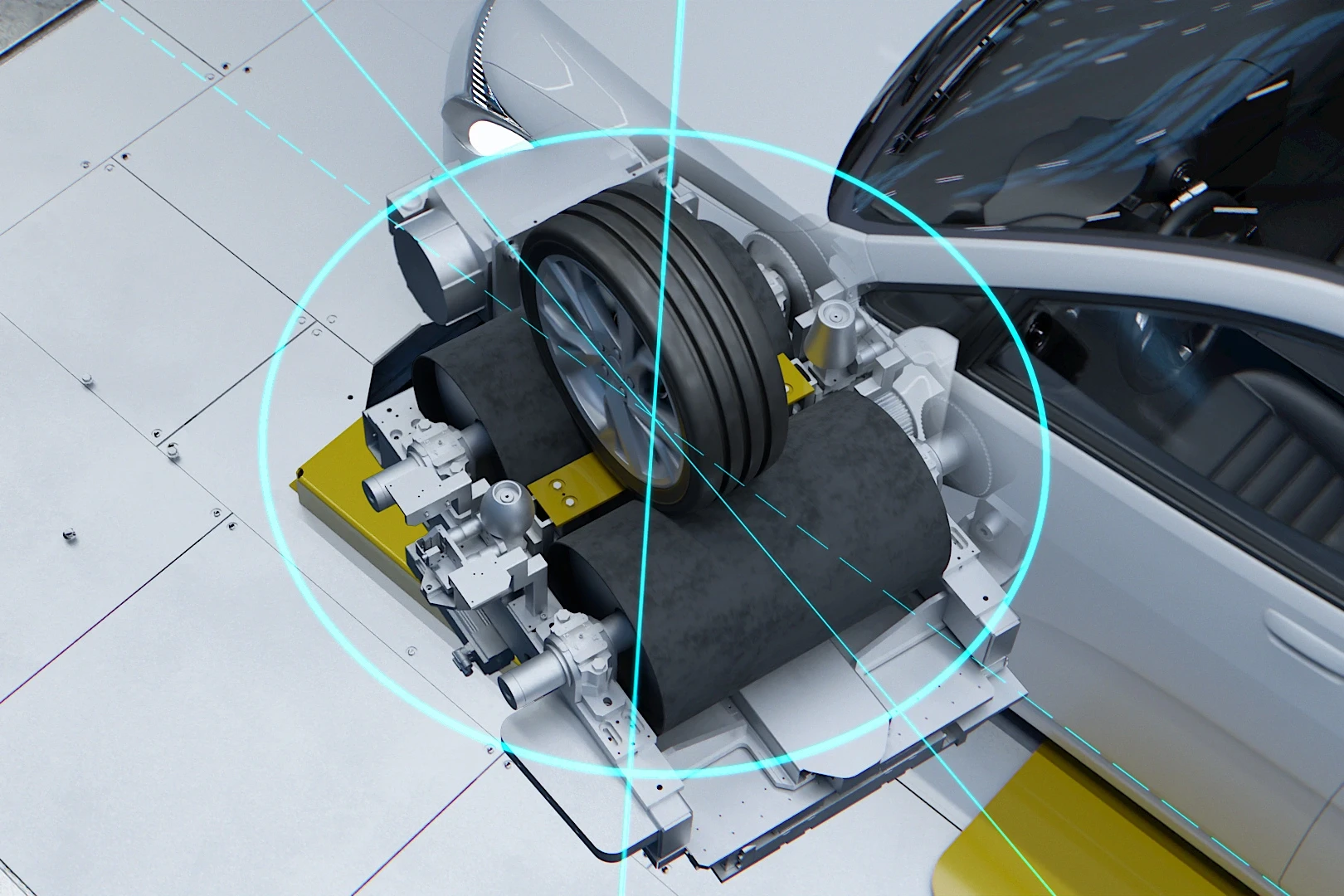


Supported ADAS systems
Dürr’s x-proof 360 Vehicle-in-the-Loop setup using over-the-air stimulation covers all relevant safety-critical automatic driving functions such as:
- Advanced Emergency Braking Systems (AEBS)
- Forward Collision Warning Systems (FCWS)
- Automatic Cruise Control (ACC)
- Automated Lane Keeping Systems (ALKS)
- Lane Departure Warning (LDW)
- Active Lane Change Assistance (ALCA)
- Blind Spot Monitoring (BSM)
- Safe Exit Assistance (SEA)
- Intelligent Speed Assistance (ISA)
- Traffic Sign Recognition (TSR)
- Adaptive High-Beam Systems (AHBS)
- Adaptive Forward Lighting (AFL)
- Steering Assistance Systems and Active Steering Systems (also steer-by-wire)
The benefits
The benefits for applications in the fields of R&D, homologation, end-of-line and periodic technical inspection are manifold:
- Using a real vehicle in a laboratory environment
- No fixation and no modification required on the vehicle
- Sensor stimulation over the air with variable targets
- No large, fenced proving grounds necessary
- No dependencies on environmental conditions (e.g., weather, temperature, track, operators)
- Highly reproducible and repeatable test results
- Easy iteration and variation of manifold test scenarios
- Reduced staff requirements and test setup effort
- Safe operation conditions especially in case of critical maneuvers for operators and for the vehicle under test
- Ready for testing of autonomous driving functions up to level 5
